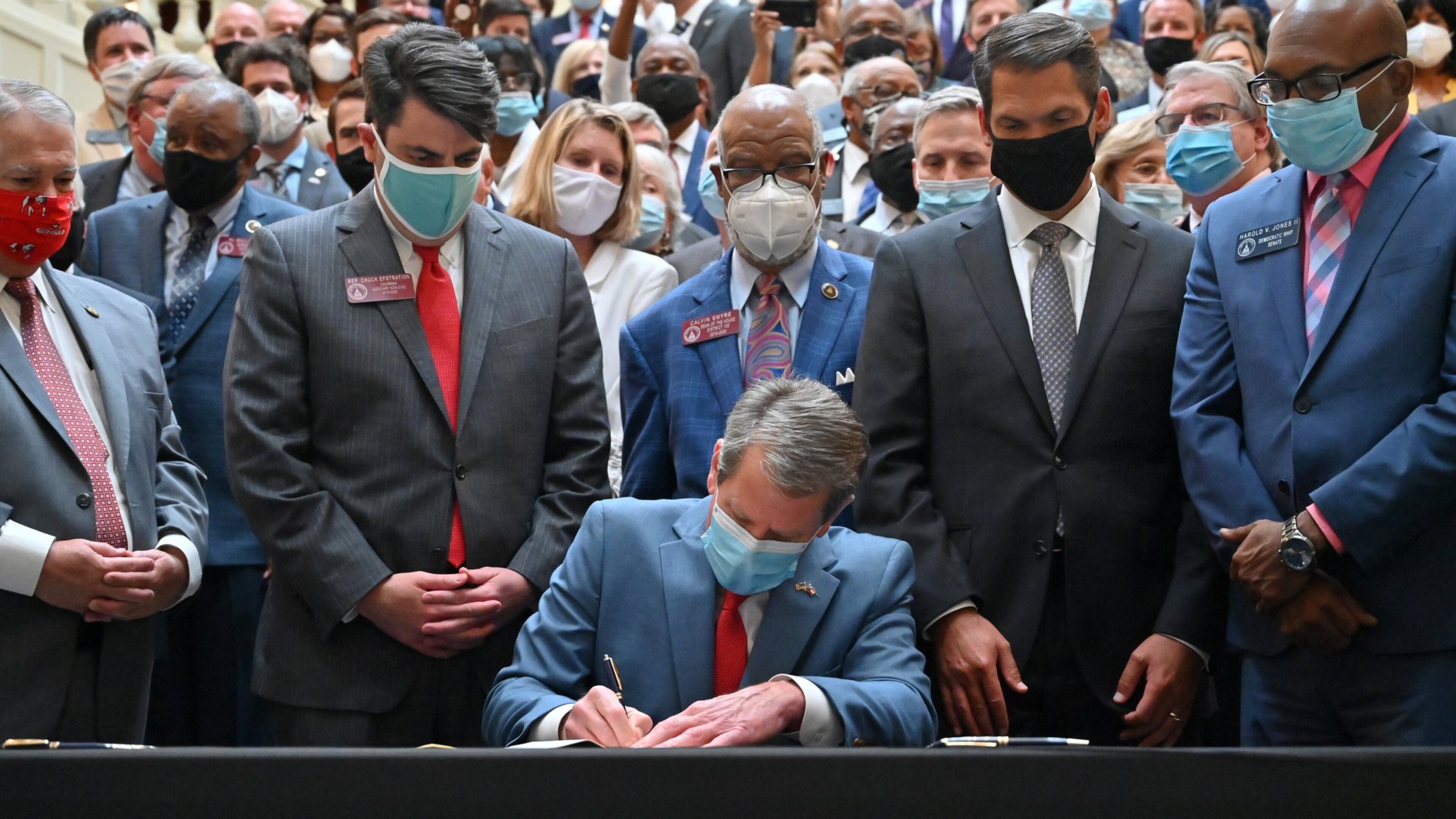Tracking convictions for Georgia’s hate-crimes law could be difficult

Gaps in data collection and reporting nationwide make it difficult to know how often hate crimes result in a prosecution or conviction.
As of Wednesday, Georgia is no longer one of the states without a hate-crimes law on the books, but with states not tracking incidents through their conclusion — or at all — it’s difficult to know how often people are convicted on the charges.
Available federal data reported from the 46 states that have had hate-crimes laws only tracks the type of incident and demographic information about the offender and victim. And experts say that California is the only state that tracks the crimes from when the incident occurs through a conviction or acquittal.
An offense is classified as a hate crime if the offender targets a victim based upon a bias against someone based on characteristics such as race, sexual orientation or religion.
In California — one of few states, if not the only one, to make hate-crime conviction data publicly available — of the 1,066 hate crimes reported by law enforcement agencies in 2018, prosecutors secured 67 convictions. The disparity between those figures could be for a number of reasons, said Phyllis Gerstenfeld, a hate-crimes researcher at California State University, Stanislaus.
“Prosecutors tend not to pursue charges unless they’ve got a pretty good idea that they’re going to get a conviction,” Gerstenfeld said. “Especially if they’ve got other charges they can bring instead, they’ll just ignore the hate crime.”
In California, law enforcement referred 425 of the 1,066 incidents of hate crimes to be prosecuted in 2018.
Of those, 314 cases were filed — 228 as hate crimes and 86 as crimes that did not involve bias. Only 103 of those cases had publicly available resolutions at the time the California attorney general released the data, with 67 cases, or 65%, resulting in a conviction for a hate crime. Three of those cases resulted in no conviction, and 33 had convictions for other offenses but not hate crimes.
Georgia Rep. Chuck Efstration, a Dacula Republican and attorney who sponsored the state's hate-crimes legislation, said it is up to prosecutors to determine what charges to pursue.
“Prosecutors have the ability to take the facts that are unique to the case and present it to the jury,” said Efstration, a former prosecutor. “It’s that prosecutor’s burden — a very high burden — to prove beyond a reasonable doubt that a sentencing enhancement based upon a hate crime is appropriate.”
Many things can happen between the time a hate crime is reported and the final outcome of the incident, Gerstenfeld said. The potential additional penalty of a hate crime can be used as leverage for a plea agreement, the interpretation of an incident could vary between a police officer and a prosecutor, or the underlying crime committed is vandalism or trespassing and prosecutors don’t pursue charges.
Georgia's new hate-crimes law mandates that incidents are reported, but it does not require those reports to include whether prosecutions are pursued or convictions are made. State Sen. Harold Jones, an Augusta Democrat who negotiated the legislation in the Senate, said Georgia's new law is a starting point.
“Right now, the first thing we wanted to do is make sure that they have data collection in there — remember: this was something we had to fight to get included,” he said.
Nationally, 2,026 law enforcement agencies reported 8,496 hate crimes offenses in 2018, according to the Federal Bureau of Investigation. Though Georgia did not have a hate-crimes law on the books, some jurisdictions such as Cobb County and Atlanta voluntarily submitted statistics to the FBI.
Of those offenses, 30.1% were intimidation, 22.3% were assault and 22.1% were destruction or damage of property.
In 2004, the Georgia Supreme Court struck down a 2000 hate-crimes law as “unconstitutionally vague.”
Georgia's new law gives sentencing guidelines for anyone convicted of targeting a victim based on race, color, religion, national origin, sex, sexual orientation, gender, mental disability or physical disability. The passage of House Bill 426 marks the first time the state has passed a bill that protects the LGBTQ community.
If convicted of a felony or one of five misdemeanors — simple assault, simple battery, battery, criminal trespass or misdemeanor theft — and the crime is found to be motivated by hate, a judge could impose additional penalties.
Someone convicted of committing a hate crime would face an additional six to 12 months of incarceration for a misdemeanor or at least two years for a felony. He or she would also face a fine up to $5,000.
With Georgia’s law taking effect Wednesday, law enforcement can begin tracking crimes to see how prevalent they are, where they’re occurring and to whom. But Jones said there is room to come back and revise Georgia’s data-tracking requirements.
“Let’s start with this data collection and then move forward and see where we are as far as keeping up with hate crimes in Georgia,” Jones said.
And whether or not hate crimes are prosecuted and result in convictions, Gerstenfeld said it is still important for states to have a law on the books.
“One of the strengths of hate-crime laws is that they serve a symbolic purpose — that they’re sending a message that this particular behavior is unacceptable and this is deserving of extra punishment,” Gerstenfeld said. “I think that’s really one of the biggest things that they do. But if we don’t enforce them, that’s sends a message, too.”



